Spain Economic-Commercial Counsellor Saez of Spain in Seoul
By Publisher Lee Kyung-sik with Feature Editors Kim Hyung-dae, Keven Lee
Economic & Commercial Counsellor Dario Jose Saez Mendez at the Embassy of the Kingdom Spain in Seoul said that Spain takes great interest in the promotion of relations, cooperation and friendship with Koreain the economic, commercial and many other fields. Speaking at a recent interview with The Korea Post media at his office in Seoul, Counsellor Darío Sáez said that amidst the growing ties of bilateral cooperation there was a visit by H.M. King Felipe VI of Spain toKorea on Oct. 23, 2019. Then in return, he said, President Moon Jae-in visited Spain at the invitation of H.M. King Felipe VI on June 15 this year.
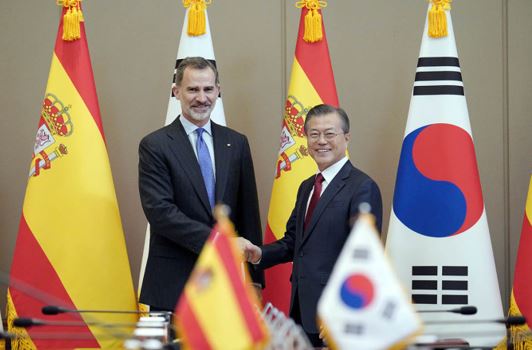
Commercial Counsellor Dario Saez said, “I am sure that such changes of visits at the level of the Heads of State between the two countries greatly contribute to the promotion of relations, cooperation and friendship between the two countries.”
“During these visits,” said Counsellor Dario Saez, “Our two countries were able to address and advance our relations in various fields, from the political and institutional through the economic and commercial to the cultural, scientific or technological.” Counsellor Dario Saez discussed a wide range of topics at the interview in the interest of further promotion of relations, cooperation and friendship between his country and Korea.
Excerpts from the interview follow:
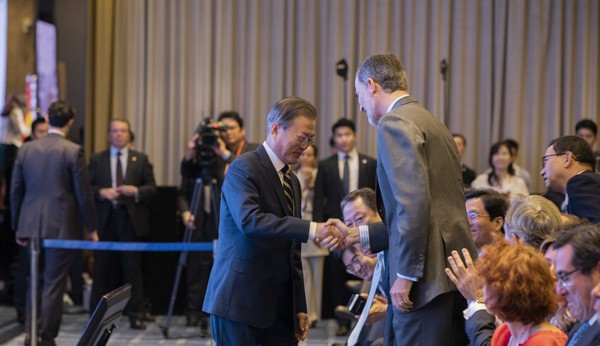
Question: As the head of the Commercial-Economic activities at your Embassy, please introduce yourself fully.
Answer: I have developed my entire professional career in the Spanish public sector working in economic affairs, multilateral financial institutions and trade matters. Currently, I am responsible for the Economic and Commercial Office of the Embassy of Spainin the Republic of Korea as Economic and Commercial Counselor since September 2020. Prior to this position, I held the same position at the Spanish Embassies in Cuba, Switzerland and Denmark. (Further (personal) details are at the end of this report.)
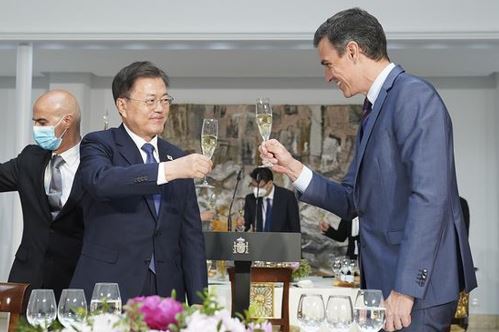
Q: Please introduce your government minister in charge of commerce, economy and industry to which you originally belong.
A: In the current Spanish administration, commerce, economy and industry competences are shared among two different Ministries.
The Ministry of Economic Affairs and Digital Transformation is responsible for proposing and implementing the Government's economic policy and reforms aimed at improving competitiveness, telecommunications and the information society.
International trade and commerce are the competence of the Secretary of State for Trade, which is part of the Ministry of Industry, Trade and Tourism.
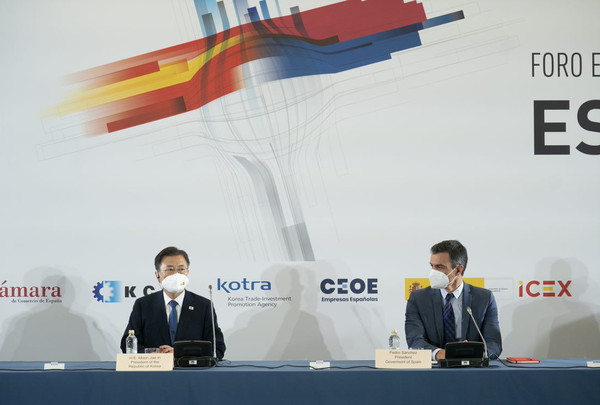
The Minister of Industry, Trade and Tourism in the current administration is Mrs. María Reyes Maroto Illera. She is a Spanish economist and politician graduated in economics from the University of Valladolid. Mrs. Maroto worked for the Ideas Foundation for Progress between 2011 and 2013, and has been an associate professor in the Department of Economics at the University Carlos III of Madrid.
In May 2015, she was elected deputy of the Assembly of Madrid, in which she served as the Socialist Party’s spokesperson in the Committee of Budgets, Economy, Finance and Employment. In June 2018, she was appointed by Prime Minister Pedro Sánchez to integrate his new Council as Minister of Industry, Trade and Tourism.
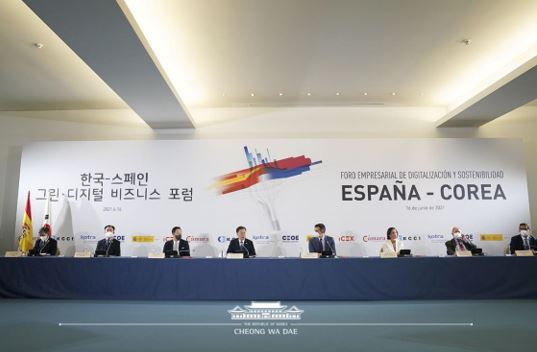
Q: What is the present volume of bilateral trade, its outlook in the next 12 months?
A: The evolution of trade relations between our two countries has shown very positive progress in recent years, and Korea is currently for Spain a major trade partner in Asia. The turning point was the signing of the Free Trade Agreement in 2011 between the EU and Korea; since then, trade has more than doubled to reach €5,4 billion in 2019. For Korea, Spain is currently the sixth market in the EU, and Korea is Spain’s third largest market in Asia, after China, coming very close to Japan, on a par with Russia and ahead of India. However, the effects of the COVID pandemic meant that Spanish exports in 2020 were only €1,528 million and imports €2,395 million.
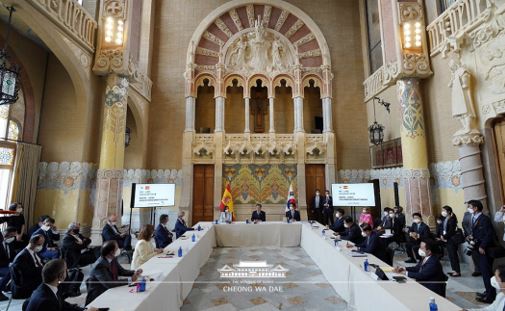
I believe there is still significant scope for developing our bilateral trade relations both in the short and long-term. During the next 12 months, as the slump in trade caused by the pandemic subsides, it is expected that a significant growth in bilateral exchanges will take place. Already, the latest available figures for 2021 (up to August) show that bilateral exchanges this year are substantially higher than during the same period in 2020. I am confident that, as the situation normalizes, the growth path prior to 2019 will be resumed.
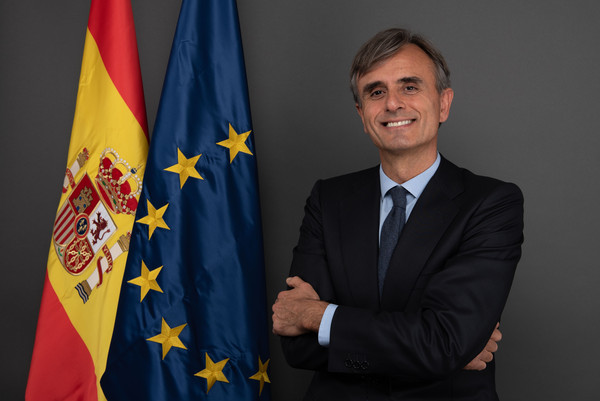
Q: What are the areas in your country where you want Korean companies to invest and what are the areas where you wish your businessmen to invest in Korea?
A: Korean investment in Spain has a long tradition and has been developed mainly by companies belonging to the chaebols, both in commercial distribution and industrial sectors. Given the profile of these Korean companies, it is foreseeable that these investments will continue to focus on these sectors, but with an increasing emphasis on "green" investments such us batteries or renewable energies.
I believe Spain offers many opportunities for Korean investments in these areas, as our country offers a highly skilled labor, a first-class infrastructure network and a strong government support. These are all very important factors for industries such as semiconductors, batteries or hydrogen; in which Korea is a world leader. There is a lot of room for cooperation in this regard and I am sure we will see significant Korean investments in these fields coming to Spain in the years to come.
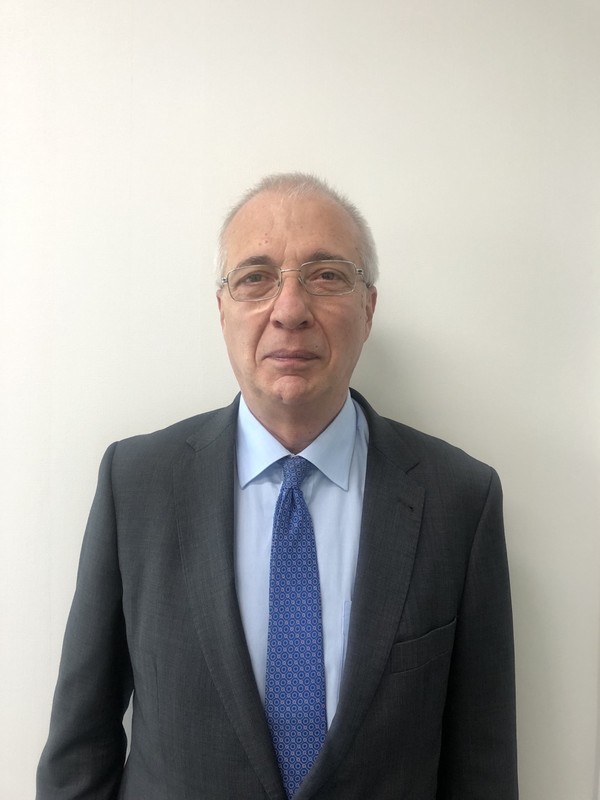
In turn, Spanish investment in Korea is smaller and currently concentrated in the real estate, retail, automotive and steel sectors. However, Spanish companies are also increasingly considering investments in Korea, taking advantage, among other factors, of the significant boost that the Korean government is giving to specific sectors such as green energy or digitalization. I would like to mention here that in these fields Spain has outstanding companies of international reference and these large companies are accompanied on their way by a cutting-edge and extensive network of SMEs. Therefore, my expectation is that Spanish investments in Korea will increase greatly in the future as ambitious government plans such as the Korean New Deal develop.
I would also like to add that, in both directions, there is ample room for collaboration to boost the presences of startups in our respective countries.
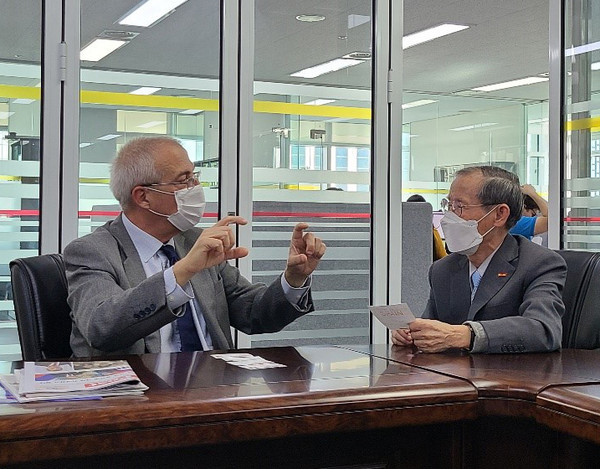
Q: What are your competitive products and/or services attractive to Korea? Who are the companies of your country exporting their products to Korea?
A: Spain is a very diversified economy and the products that our country exports to Korea reflect this. In the food and beverage industry, Spain is very competitive and we are a major exporter to Korea of pork, wine, and gourmet products. Spain also has a very strong pharmaceutical industry, exporting extensively to your country. Another important chapter of Spanish products demanded in Korea are clothes, shoes and other fashion articles. Korea also demands industrial products from Spain, such as machinery or electrical equipment. My country is, like Korea, a large car manufacturer and many vehicles as well as auto parts are exported here. It is noteworthy that Spain also exports airplanes to Korea.
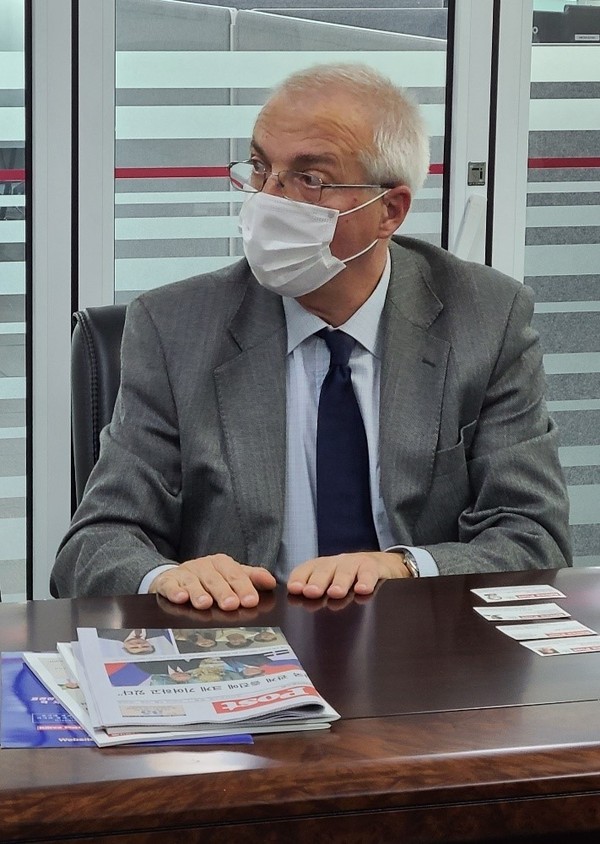
The number of Spanish companies exporting to Korea is large and have been increasing in the last years: almost 3,500 exported their products to Korea in 2020. A few examples of well-known companies in their respective sectors exporting from Spain would be AIRBUS, in the airplane industry, INDITEX, in fashion, INDRA, in air traffic and defense systems or SENER, in naval engineering.
Regarding services, tourism plays a major role in our exchanges, as the increase in the number of Korean tourists coming to Spain has been spectacular in the last years until the arrival of the pandemic, reaching over 630,000 Korean visitors in 2019. Only two countries in Asia visited Spain more that year: China (700,748) and Japan (677,659).
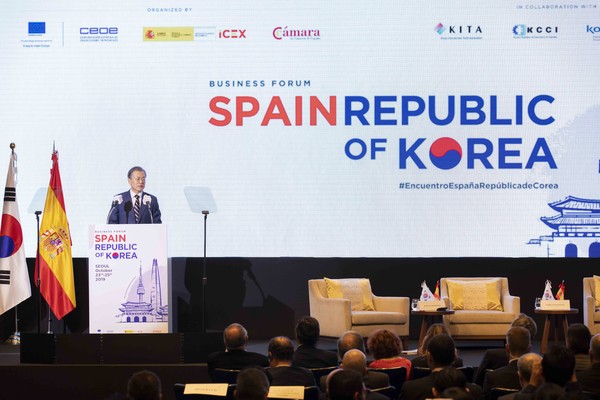
Q: What are the Korean products and services that your country might wish to import?
A: Korea was the sixth largest supplier to Spain on the Asian continent in 2020. The main imported items have traditionally been cars, batteries, tires, mobile phones, semiconductors, plastics or steel.
I believe all these products will continue having a great importance in our bilateral trade and, given the strong demand in Spain, imports of semiconductors and batteries will grow greatly in the near future.
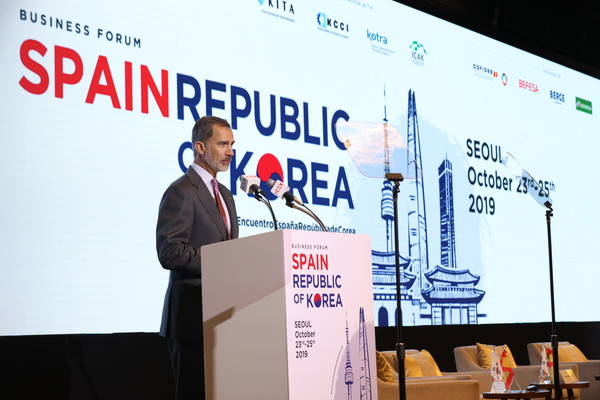
Q: Nowadays, economic cooperation between the two countries is very important. Who are the major Korean companies actively engaged in bilateral economic cooperation? Please introduce them in detail.
A: For Korean and Spanish companies there are great possibilities for cooperation in many strategic sectors such as the defense or the hydrogen industries, for example. But one of the sectors that offers the most possibilities is infrastructure, as the outstanding results obtained from the joint participation of Spanish and Korean companies in infrastructure projects in third markets may attest. Many joint projects have already been carried out, as the engineering and construction companies of our two countries are among the most dynamic in the world.
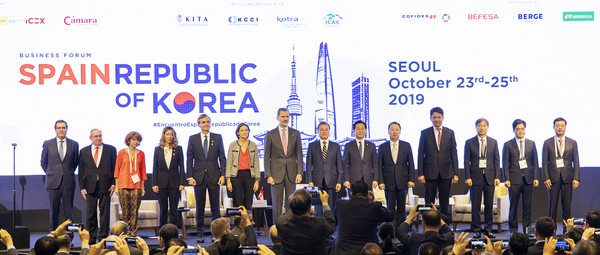
One example of this cooperation is the recently signed agreement between Iberdrola and GS Energy. Iberdrola is a global energy leader, the world's largest wind power producer and one of the world's largest electric utilities by market capitalization.
Another aspect of this cooperation is that, although it extends to all continents, it is particularly intense in the Middle East. One good example of cooperation in this area of the world are the joint projects of Técnicas Reunidas with Hanwha or Samsung. Técnicas Reunidas is an engineering and construction company specialized in the design, management and execution of industrial plant projects.
I would like to stress that both our countries have committed to establishing a strategy based on the transformation of the economy and businesses towards a greener and more digital environment. Indeed, the ecological and digital transition are the main fields that, together with the strengthening of the welfare state and social cohesion, underpin both the Spanish Recovery, Transformation and Resilience Plan, and the Korean New Deal.
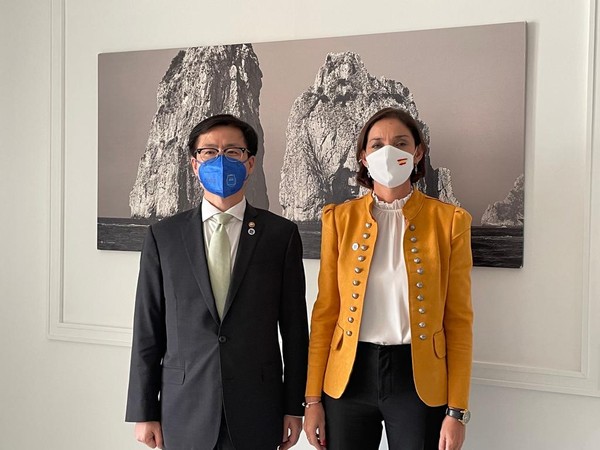
In both cases, the objective does not lie exclusively in helping to emerge from the current crisis, but it is rather a strategy for the structural transformation of our economies towards the sectors of the future. Our recovery plans, therefore, are configured as ambitious strategies through which Spain and Korea may cooperate in the search for a common future in the field of the green and digital economy. A good example of this cooperation is the developing of an offshore wind farm by EDPR int the area of Ulsan. EDPR is a Spanish renewable energy company engaged in the development, design and management of renewable energy power plants. The company is interested in developing wind farms in Korea, both offshore and onshore.
I would like to add that Spain can serve as an excellent allied for Korean companies to approach the Latin American market, while Korea can play the same role for Spanish companies in Asian markets. Also, as shows the recent agreement between the ports of Busan and Barcelona to establish a logistics platform in my country, Spain can serve as an excellent distribution center for Korean companies interested in reaching the whole of the EU and the Mediterranean countries.
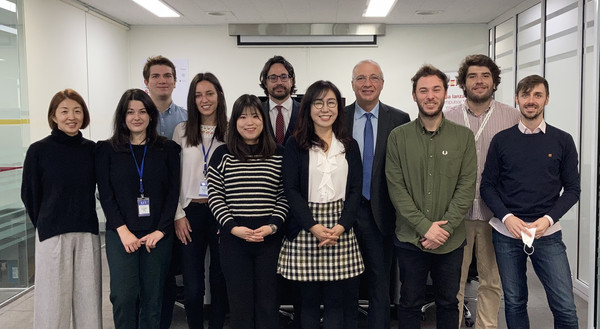
Q: Korean medical hospitals are rated to be very competitive in the world. Who are the major Korean hospitals doing well in your country?
A: The Korean healthcare system is indeed one of the best in the world. For this reason, Korea is a very attractive destination for medical tourism. However, until now there is no presence of Korean hospitals in Spain and medical tourism between the two countries is very low.
We hope investments in the healthcare sector may rise in the future as our already excellent bilateral relations become stronger.
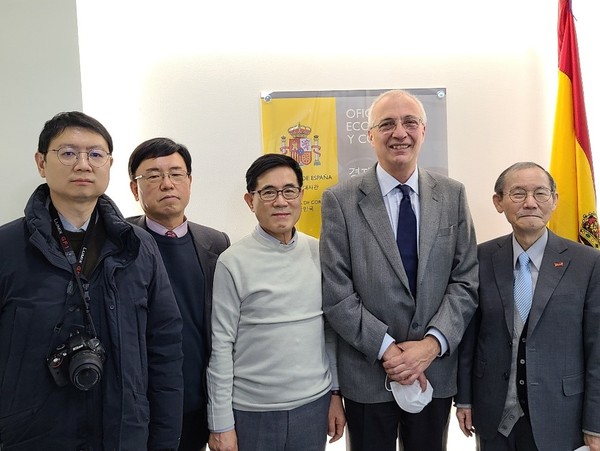
Q: Korean people, especially the up-and-coming Korean businessmen need rest and recuperation. What are your tourist attractions?
A: As I mentioned before, Spain has become a major destination for Korean tourists and your fellow countrymen already know Spain for our exciting cultural, natural and gastronomic heritage.
Korean businessmen may also take advantage of their visits to Spain to enjoy the many aspects that make Spain one of the world´s top destinations for international travel. Spain is a country that offers a multitude of options. It is a place to wander through modern cities, but also cities that will take you back in time to a different era. Korean people may immerse themselves in a culture with an ancient history: from the medieval Gothic Quarter in Barcelona to the Alhambra in Granada. Not surprisingly, Spain is the country with the third largest number of UNESCO World Heritage sites. My country also has an outstanding offer of world class museums of art, such as the Prado Museum, the Thyssen-Bornemisza or the Reina Sofía.
But tourists may also taste Spain's famous tapas or indulge in haute cuisine of the highest order. Marvel at the wildlife in its protected natural spaces or enjoy outdoor sports. Go partying or shopping. Lounge on the beach or go skiing in the mountains. Whatever a Korean businessman may like doing, he´ll find it in Spain.
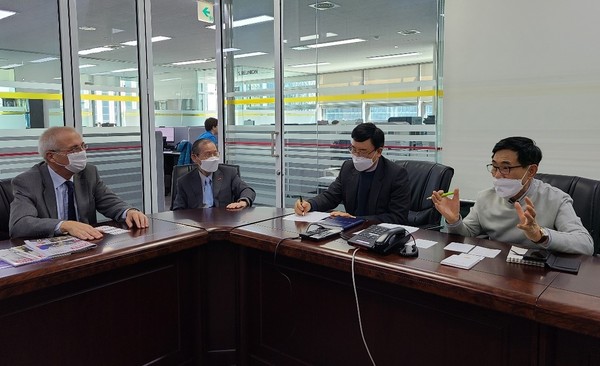
Q: What are the most important festive days in your country? Please elaborate.
A: Most holidays in Spain have been religious in origin. At the national level the most important of these are Holy Thursday, Good Friday and All Saints’ Day (November 1). Besides Christmas Day, another important festive day during winter is the Day of the Three Kings, or Epiphany (January 6).
During Constitution Day (December 6), Spanish people celebrate the advent of democracy in 1978. October 12 is the Day of the Virgin of El Pilar, but also the National Day of Spain. In addition to this day, each of the autonomous communities that are part of Spain celebrates its own regional holiday among other local festivities.
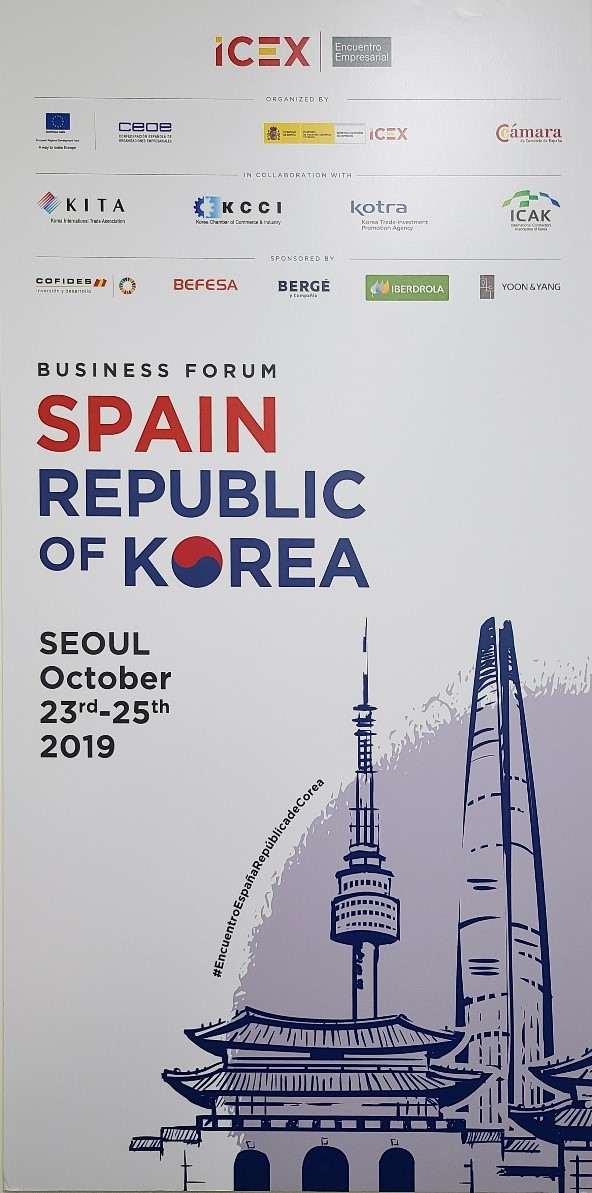
Q: Please add whatever other details that you might consider to be important.
A: This year 2021 remains difficult for our two countries and the entire international community, as we are still suffering from the health, economic and social impact of the COVID-19 pandemic.
In this unfavorable context, we celebrated in 2020 the 70th anniversary of the establishment of bilateral relations between Korea and Spain, which began with the State Visit that Their Majesties the King and Queen of Spain paid to Korea in October 2019. This visit was followed by the State Visit that President Moon Jae-in paid to Spain last June. During these visits our two countries were able to address and advance our relations in several fields, from the political and institutional through the economic and commercial to the cultural, scientific or technological.
We are, therefore, already facing solid and growing economic relations, although I firmly believe that Korea and Spain still have ample room to continue broadening and deepening ties, complementing the dynamism of our trade exchanges with more bilateral investment and business cooperation both in our respective countries and in third markets.
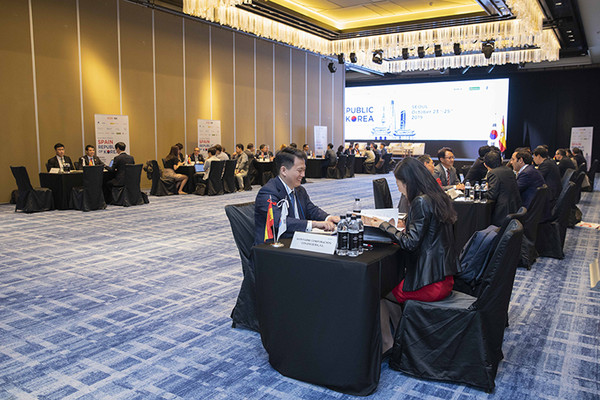
Q: Please introduce yourself more in detail.
A: I was born on March 17, 1960 in the province of León (Spain).
I studied secondary education in the city of Lugo, moving to Madrid at the age of 17 to study Economic and Business Studies (specializing in Quantitative Economics) at the Autonomous University of Madrid from 1977 to 1982.
After doing the military service on the island of Tenerife, I began working in 1985 at the National Institute of Statistics and, from 1988, at the Ministry of Economy.
From that time onwards, I have been alternating postings in Madrid with positions abroad, serving as Economic and Commercial Counselor of the Spanish Embassies in Cuba (1990-1994), Switzerland (1997-2002), Denmark (2007-2012) and, since September 2020, at the Spanish Embassy in the Republic of Korea.
In Madrid, I have held several positions in charge of Spain's economic relations with several Latin American countries, as well as conducting macroeconomic studies, participating in the negotiations for the creation of the Asian Infrastructure Investment Bank, and attending to Spain's relations as a member of the EBRD, IDB and CAF, in addition to participating in OECD meetings on economic issues.
I am single and speak English and French.

